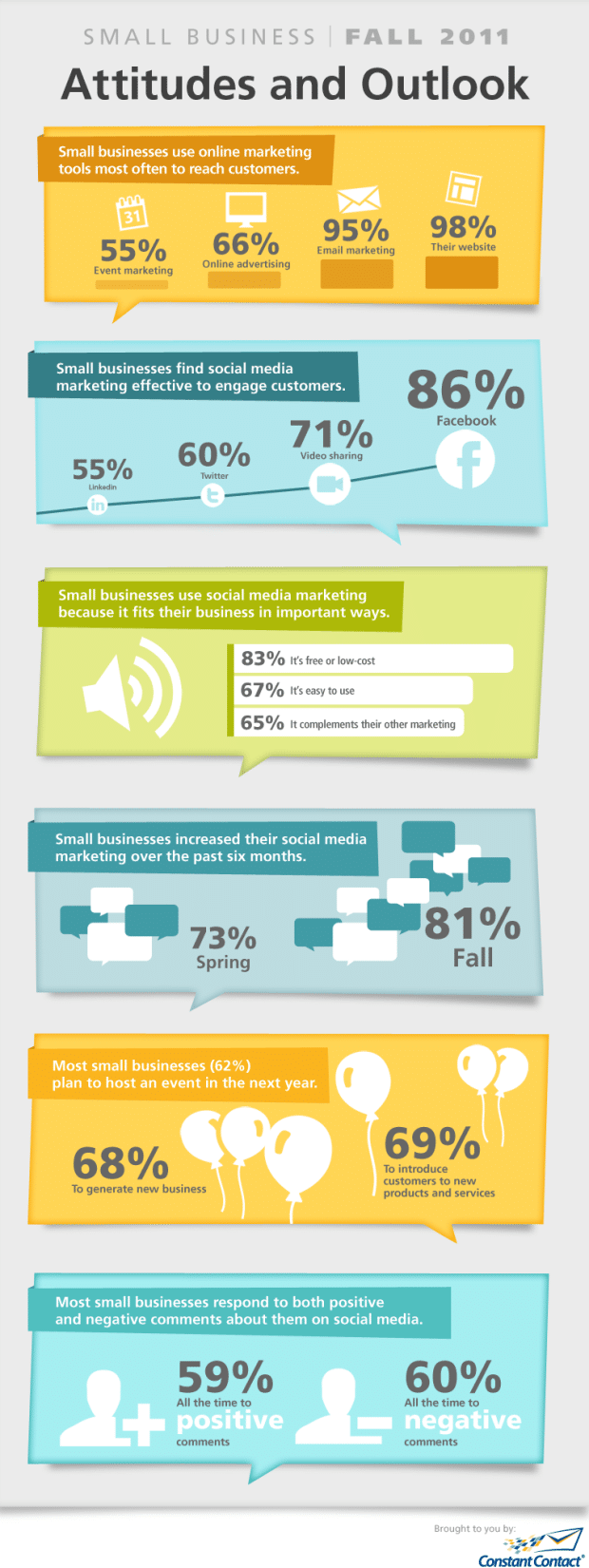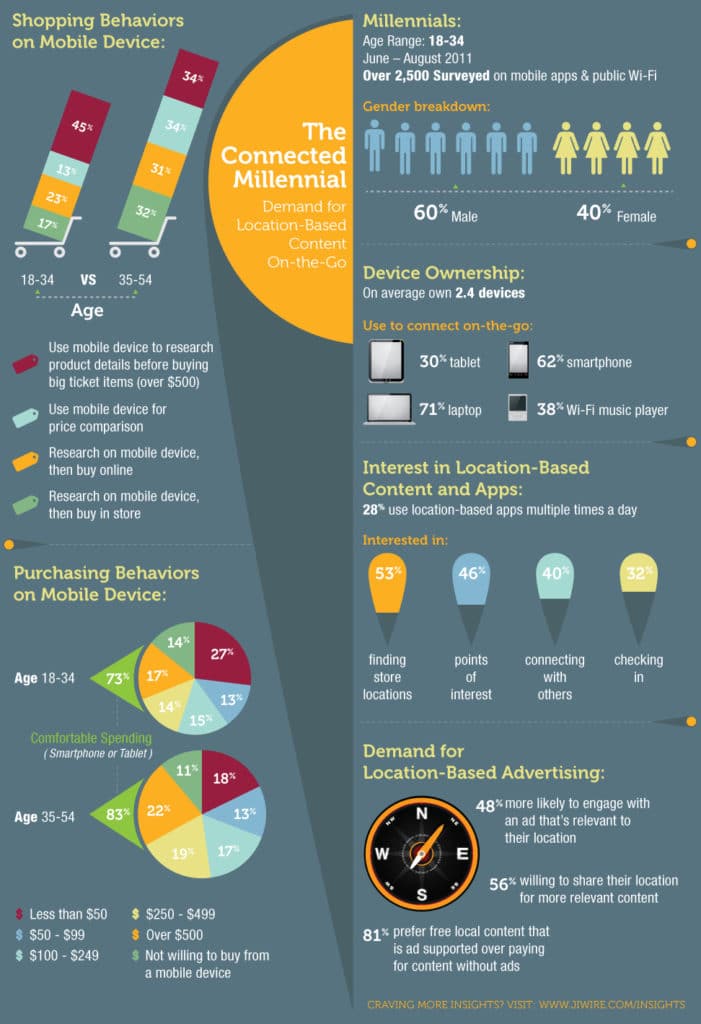
Facebook, the world’s leading social networking portals has turned out to be a great evidence of being the most useful tool when it comes to marketing and advertising in the past several years. There are more than 19 hundred million women and men with active accounts on Facebook and approximately 4 out of 5 US citizens have their own active Facebook profile.
In the present times, Facebook can turn out to be an Internet marketer’s instrument as it will enable you to talk and reach a large number of people at the same time, easily as well as quickly. In addition, it also enables you to carry out exclusive marketing to all such people who will be already opting for your products or services that you will be putting up for sale.
With Facbook, You will be provided with numerous different options pertaining to local community development and a lot more. That is one of the reasons why a large number of businesses and even individual brands are generally setting up their Facebook profiles gathering countless fans and followers. With exceedingly similar tools that are available with Facebook, large businesses utilize them to get in touch with their consumers and clients on a regular basis.
As a system advertiser, your business relies upon having the ability to establish, sustain as well as guide your current associations along with your family members, friends and also consumers, consequently this social networking giant appears to be one of the best tools which will help you accomplish your objectives to build more customer relationships along with helping the fresh online marketers.
Following are some of the most vital tips and techniques to check out if you are considering your online based business to be able to tap into Facebook users involving a large number of potential consumers.
Basic Vital Steps To Reach Facebook Audience
Set Up An Account
First and foremost, you are required to create your own business Facebook page. This is normally called as the Fan Page and all those people who are going to follow you through your page are known as the ‘fans, but now Facebook has modified them to mere Web pages, along with all such people who ‘Like’ the page in lieu of transforming into a prospective fan of the particular page.
Attracting Customers
The primary suggestion concerning Facebook is just to invite all of your Facebook contacts to ‘Like’ your site. This is quite basic; however you need to understand the fact that your friends and family members are normally already aware about your portal or business, given the fact that in marketing and advertising tool, there is undoubtedly probably less worthy in having family and friends to have your page checked.
Engage Your Followers
Putting up a Facebook page does not require much of an effort but encouraging your audience and interacting with the certainly does. If you are unable to encourage your subscribers to patronise your services and products, your page is not doing anything good for you. You need to come up with a reason related to why you have established a page and what it could do for your present as well as potential customers so that they can discover latest happenings on your page.
You can even utilize your Facebook page to deliver useful information, techniques or even suggestions. Try provoking comments and discussions from members in order to encourage a sense of community with your followers.
Most engaging content types for Facebook
When it comes to creating content for Facebook, there are a few different types that tend to perform well.
Firstly, posts that are visual tend to be more engaging than those that are purely text-based. This could mean using photos or videos, or even infographics or other types of visuals.
Secondly, posts that ask questions or prompt discussion tend to do well on Facebook. By getting people talking, you can encourage them to stick around and continue scrolling through your feed.
Finally, content that is timely and relevant is more likely to be engage with than evergreen content. This could be information about current events or trends, or even just timely updates about your product or service.
By understanding what kinds of content perform well on Facebook, you can ensure that your page is more engaging and successful.
Related Reading: How to increase Facebook Traffic?
How you can have better presence on Facebook
Creative ways on how to have a better presence on Facebook. Infographic, facts and figures on how you can have a better presence on Facebook
Facebook has become a phenomenon and there are not many who don’t use Facebook everyday. Its not only a website for social networking but its also a great business marketing tool. If you have a business then you can advertise about your brand on Facebook and you can do that without direct references which is a great strategy.
There are many tricks that can be used in Facebook to get a better presence which will help you to be connected with expected customers. Use your imagination and creativity to get the best results out of your Facebook profile. Before coming to how you can have better presence on Facebook, lets have some excellent infographics to have some ideas about why Facebook, Facebook fans anatomy, why, what and when people share and how many small businesses prefer Facebook for business.
Facebook By Numbers :: Infographic


Posting something on your Facebook daily is very important to be present. Having an active Facebook profile is very important in order to be active with your Facebook marketing. Post whatever you like and be connected with everyone.
That way you will surely have a better presence in Facebook. If you have a business website or blog then you must keep posting their links on your Facebook account. The important thing is to make sure that all your Facebook connections are always updated with news about your products and services. You must post your Facebook links in your blog too as it’s a two way business marketing strategy.
Anatomy of a facebook fan

Attracting people is the key to successful marketing. If you want people to notice your post on your Facebook profile or page then you need to attract people with a picture. You must attach an eye catching image to your post so that people find your post interesting and then open it.
Another very fun way to get better presence in Facebook is to interest people with fill in the blanks posts. You can start a post with a fill in the blank statement and people will surely comment on that post as its very funny. It will build up your connections.
Better Understanding of Facebook Insights

A great way to have better presence in Facebook is to ask for help from people you are connected with. Tell them about any problem that you are facing and ask them to give you suggestion for that. People love to give out free suggestions and your post will have many comments very soon.
It will build up your presence. Don’t always post about things that are related to your business. You have to make sure that people like you as much as they love your products. Post about interesting and helpful news. This way, more people will be connected with you.
How Small Businesses See Social Media Especially Facebook

Another important thing is to make sure that you have a personal relationship with your expected customers in Facebook. The easiest way to do that is to talk to them every now and then. Try to be popular among people of Facebook to have a better presence in it.
Ask them to post about their life in your story and suggest them about their problems whenever you can. More than anything else you need to gain their trust and there is no better way to do that except coming out as a friend.
Related reading – Creating customer evangelists
Facebook Advertising – The Future is Here

In one of our last posts, we discussed a few tips to create impressive Facebook ads to attract potential clients. But before you start implementing those tips, have you ever wondered why should you invest in Facebook ads in the very first place?
The answer is simple – Facebook is future of advertising. I know it’s a bold statement; nevertheless, it is true. The trend says anything that is new and has the potential to create the buzz will attract the people. Remember when banner ads were first invented in 1994 by Wired.com! Their click-through rate initially was 78%. Though their click-through rate has now dropped to an average of 0.2%, this form of advertising ruled the market for quite some time. Thus, we can safely bet that Facebook ads too will be dominating the market in future.
Moreover, Facebook has the data. All they need is to build the analytics to leverage the power of social advertising. And if you see the statistic, you can understand what I mean. Since last year, Facebook advertising rates have increased to 41%. This is amazing, especially when Facebook started showing more advertisements per page the prices should have decreased. Rather, the prices of Facebook ads managed to increase.
In United States, the average cost per click of Facebook ads has also increased by 20%. However, the click through rate in USA decreased by 8%. This doesn’t mean that Facebook advertising has become less of a viable platform in USA. The ad platform of this social networking site comes with a unique feature of detailed targeting, which is too good to stay away from when it comes to framing your digital marketing campaign.
In fact, Facebook ads opened new opportunities for local advertising. Many small-scale businesses and marketers have been successfully driving leads with the help of this method of advertising. Small businesses can actually use this to generate local leads. Another reason to invest in Facebook ads is its current membership. At present, Facebook has more than 150 million, which is likely to increase in the near future.
Besides, statistics says, the fastest growing demographics of this social media are over the age of 25. Thus, your Facebook ads are likely to target more than the college crowd. The non-US markets too can focus on Facebook. In fact, non-US based Facebook members are one of the fastest growing sectors. Thus, international businesses can enjoy less saturated as well as cheaper foreign clicks.
However, advertisers need to think out-of-the-box since Facebook is more likely to become inundated with advertisements in the future.
How to use Facebook Ad Library for endless Ad ideas
Facebook Ad Library is a tool to use for exploring different types of ads that businesses are running. It can provide inspiration for your own ad campaigns, as well as give you insights into what strategies are working well for other companies.
To access the Ad Library, simply go to the Facebook Ads manager and select “Ad Library” from the menu on the left.
From there, you can browse through different categories of ads, or use the search bar to find ads related to specific keywords. Once you’ve found an ad that interests you, you can click on it to view more information about the campaign, including how long it’s been running and how many people have viewed it.
The Ad Library is a valuable resource for any business that wants to stay up-to-date with the latest marketing trends.
The Call: Facebook

When did you last visit your Orkut profile? Stop before you start counting on your finger because I already know it’s almost a decade ago when you last checked your Orkut profile.
A social networking site which used to rule the web world died because it failed to meet the expectations of its users and when it failed it eventually failed the users too, because one must not forget that a social networking site is nothing without it’s users and the users are the one who invest their time to build the community.
So why am I after Orkut here when this article is about Facebook? Facebook is popular and there is no chance that the same will happen with facebook also.. well you might need to think again before you make such statement!
Facebook became popular because there was nothing old about this, every feature it introduced to the mass was unique and people loved it. It gave us a platform with hundreds of audience which we could not have in real life, it gave us the chance to perform before all of our friends and this feature is still awesome, but like everything facebook is also getting old and many people have already decided to move on.
The fact is that it’s not cool anymore which was the main reason how Facebook managed to get billions of user around the world. One of it’s feature that made it so popular that is content sharing with others is not attracting the mass like it did when it was first introduced, and experts agree that Facebook is now at the point of loosing popularity. It’s a fact that 90% of it’s revenue comes from the ads and that means once it starts to lose the popularity, it will be doomed like all those ‘once very popular’ sites.
For an example once Facebook was popular because of it’s photo sharing feature, but over time users shifted to taking photos with smart phones and the service started to get tired, even though Facebook realized this and incorporated instagram to deal with the problem, I don’t think it did any better.
And the next thing is it’s new features, like the timeline. You can find a lot of people complaining about this over the internet, and it seems legit to me.
Let’s get back to the business factor, this is the one issue that Facebook has totally failed to solve. Facebook has let the sellers reach it’s users directly which turned out to be a fail on both the part of facebook and it’s users.
The fact is that Facebook is not a business platform and the users never liked ads posted in their face distracting them from the latest trailer of expandables 2 or the Justin Bieber joke. There is a very small number of people who are willing to sacrifice their online hangout time for the sellers and we all know what happened because of this , Facebook’s IPO failed.
Considering all these factors, I think Facebook is in need of doing something new that can fulfill the user expectations of future else it will face the fate of all those companies like Netscape, Orkut , letstalkaboutpep.com and many more.
Facebook Advertising – Its Pros & Cons
Know the pros and cons of Facebook advertising in nutshell. Comparison of effectiveness of Facebook advertising for e-commerce segment and PPC advertisers.

Facebook advertising created a buzz when it was first introduced and till date, it continued to grow in popularity. Better yet, it became a viable traffic builder with the advent of more targeting ads. In fact, you can now target Facebook ads specifically towards certain demographic factors including sex, age, education, and location. Facebook also have tighter restrictions when it comes to the quality of ads. In short, Facebook ads crated a great advertising platform for both large and small businesses.
However, like every other advertising and marketing platform, Facebook ads come with certain pros and cons.
Pros:
While talking about the advantages of Facebook advertising, the first thing that comes to mind is its customer reach. Facebook, at present, has around 400 million customers including 100 million mobile users, which is too good to be ignored. Though Google Adwords continues to be a viable platform to reach more numbers of targeted customers, usage time on social channels is rapidly increasing. Thus, overlooking the potentials of Facebook advertising is like running backward.
Facebook advertising provides the option of PPC or CPM, whereas other advertising networks offer one or the other. Thus, you can opt for the CPM advertising if your focus is on exposure and awareness; alternatively, businesses interested in providing more information and conversion can select PPC advertising. However, you need to understand your audience before deciding on a particular form of advertising.
Another benefit of Facebook advertising is its increased targeting ads. Facebook can dissect and segment its users’ information. Advertisers can leverage upon this special feature of Facebook. Better yet, this social media giant provides real time information, helping you to reach more specific targets.
Finally, Facebook ads are extremely successful with local clients. It allows you to target local customers, which in turn, helps in generating better leads.
Cons:
For businesses that are more focused on click through rate and higher conversation rates, Facebook advertising is yet to create a wonder. In fact, it has a low conversation rates for ecommerce, as people use this platform mostly for socializing. Buying something on Facebook is usually the last thing they have in mind.
Also, the PPC cost is higher for niche markets. People also complained about the weird and irrelevant ads on Facebook. Moreover, the advertising platform of this social media channel is filled with humor sites, free giveaways and reward programs, which often make the ads less relevant.
Despite the few pitfalls, marketers believe that Facebook advertising has the potential to become a traffic builder. Facebook also made significant progress in the past 18 months, in terms of improving their advertising model. And we sincerely hope that team Facebook will overcome the few pitfalls its ad platform has and will truly become a viable traffic builder.
Tips While Creating Facebook Ads
Useful tips to design Facebook Ads. Infographic on Facebook Ad designing. Get some important tips while writing your Facebook ad copy.
Efficient Frontier, the ad-buying and optimization firm acquired by Adobe Systems Inc. reported that Ads on Facebook would account for 5% of the over-all online advertising spending this year. The amount is 2.7% up from Facebook’s ad spending during the fourth quarter of 2010. David Karnstedt, the former president and CEO of Efficient Frontier (now VP & GM, Advertising, Digital Marketing for Adobe) said, “Facebook continues to be where marketers are placing new bets by adding advertising spend with a focus on fan acquisition.”
In fact, retailers and marketers are already using Facebook Ads to attract potential customers who spend a lot of time on this social networking site. The Sponsored Stories and Featured Stories are also becoming popular for attracting people to Facebook fan page. Market surveys say, all these marketing efforts are working and brands have successfully increased their fan count by an average of 9% per month in the fourth quarter.
The ad platform of Facebook is pretty simple to work on; it has an image limit of 110×80 pixel, a title limit of 25 characters, and a body text limit of 90 characters. However, many advertisers mess up with an ad unit so small. And the trend is also noticed in Facebook. Here we have a few tips to help you create Facebook ads.
Images:
Spare us the poor quality images that have been through several rounds of Photoshop and other photo editing tools. Using pixelated, improperly stretched out, and blurry images will hardly help you to impress your targeted audience. And there is no excuse for using such poor quality images when Facebook allow previewing as soon as you load an image.
Grammar:
Just like any other web content, make sure the ad content is free of grammatical errors. Most of the ad-content go wrong with basic grammar. For example, many advertisers tend to forget (read overlook) the necessity for the end of sentence punctuation. Unfortunately, such content is often far below the body text limit of 90 characters. Thus, to make your ad-content look more professional, get rid of such grammatical errors.
Link:
As a marketer, you are fully aware of the importance of linking your content to the specific service and product. The same applies for Facebook Ads. While promoting something specific you must link it to the ad, this is especially applicable if you are promoting some contests or discounts. Link the ad to the specific tab where the discount codes are available or the contest is being held on.
Creating Facebook ads are quite simple, provided you know what you are doing and why you are doing it. In other words, you must be aware of your goals. In addition, focus on the detailing of your content to create a convincing and stronger ad campaign, which will definitely go a long way.
Useful Facebook Ad Design Tips – Infographic

How to run Facebook Ad campaigns – Steps to create Facebook Ads
- Choose your objective.
- Log into Facebook Ads Manager and select the Campaigns tab, then click Create to get started with a new Facebook ad campaign.
- Name your campaign.
- Set up your ad account.
- Target your audience.
- Choose your Facebook ad placements.
- Set your budget and schedule.
- Create your ad.
- Save and done.
- Monitor results.
Driving Facebook Traffic to your Website: Some Path-breaking Ways

The internet is always abuzz with reports, news and articles on how Facebook is productive for internet marketers. There are dime a dozen blog posts telling you, or anyone who cares to listen, about optimizing Facebook for brand building, product promotion and selling.
However, none of these posts has completely captured the essence of marketing on Facebook. Keeping this glaring omission in mind, we have decided to compile a list of our own! Here are some path-breaking ways of driving traffic from Facebook to your website.
Use BuzzSumo:
Pundits advise you to add content to the Facebook chatter about topics that you deal in. But how do you know what to add? If you don’t know what has already been said or written about, you cannot add something new or fresh! In walks BuzzSumo! This online tool will give you a clear indication of content that has been written or talked about in the last 6 months. It pans out for all the major social networks. Since we are talking about Facebook here, you can filter the results by specifying it in your search. Use these results to know what to talk about.
Pictures say a thousand word:
This is a rather simple trick in the book, but no less effective. It is the age-old saying, a picture conveys way more than mere words! This saying is even truer for capturing the attention of the viewers. Statistics support this view for Facebook. For every written word shared, there are about 2 pictures or Infographics shared! This is a factor significant enough for every internet marketer to be concerned about, especially in the day and times when there can be nothing better than content going viral online!
Choose Right Audience Demography:
Look at your products or services carefully. Is it really saleable on a social networking site like Facebook? For example, if you are selling engineering machine parts, Facebook is not really your cup of tea! Instead, if you have a self-help e-book to sell, you can quickly take to Facebook and even get results in quick time. Facebook is a clear-cut demographic that it caters to and you cannot push it without making it look impossible economically.
Analyse Facebook Insights:
Timing matters, but not as much as it used to even some time back. You could always hear someone say that your posts are likely to receive more ‘share’s or ‘like’s if you post at a particular time of the day instead of some graveyard hours. That line of thinking is not really obsolete anymore and posts do get more leverage when they are published at certain times, but the edge has lost out a little in the recent times. A better idea is to check Facebook Insights and find out if things are according to your liking before you hit ‘Post’.
Engagement Matters:
It is not always important that viewers on Facebook actually click on your link to validate their engagement with your content. It is good enough when a viewer spends time with your content displayed on their screen. They are not idle viewers. They are constantly observing and taking things in and that will help your brand register its presence in their minds. Facebook measures and uses this metric alright! Why don’t you do the same and work towards better brand engagement with your viewers?
Personal Touch & Relationship building:
Brand pages on Facebook are passé! There is a serious limit to how much content you can put up on such pages and even then, the volume of content is enormous. You are much better off to use personal Facebook profiles for quality and long-lasting audience engagement.
In fact, experts will tell you that if the important profiles in your company, like the CFO or the CEO, have Facebook pages, they are more likely to grab eyeballs than just a Customer Service page or worst, fake profiles with generic names like Dave and Stella! Convince the brand’s movers and shakers to build up Facebook profiles and cultivate them through social media experts. Your audience on Facebook must know that they are talking to people in the brand who can solve problems and actually make a difference.
We are not claiming that you have not heard about some of these ways, or even all of them! What matters is not who got these ideas in your mind first. What matters is the execution on the ground. We are have tried them with varying degrees of success. How about you? Share your thoughts of working on Facebook here so we can all learn from our mutual experiences.
Get Unparalleled Facebook Presence with These 5 Tricks
Like almost every online marketer, if you are also indulged in a love-hate relationship with Facebook, then it’s time to figure things out. You cannot deny the fact that social media plays an imperative role in the digital marketing strategy. It allows you to engage more people, increase your websites visibility and attracting more traffic towards your website.
With every passing week, Facebook seems to change and upgrade its features and functionalities. With so many changes taking place at such fast pace, it is difficult to cope up and become compatible with the changing trends. If you are planning to develop an interesting strategy to that will make you stand out on Facebook, then wait until you read this. Here we will talk about 5 uncommon and out of the box tricks that will help you in achieving an unparalleled Facebook presence.
Schedule Posts:
We agree that there is nothing better than adding a personal touch to your social media, but at times automating your social presence can shed some load off your shoulders. Scheduling your posts ensures that you save your valuable time and you don’t lag behind at off-time such as weekends and night hours.
Edit Links:
It happens to all of us- as soon as we pick a link and paste it in the Facebook status update bar, surprise! The Meta data has a lot of essential information missing. Facebook automatically picks up the information that is available on the entered URL. Though, you cannot do much about the thumbnail image, you have the choice to edit the page title and description. Just double click on the headline and description text and you can easily update the information as desired.
Define Admin Roles:
If you are handling your Facebook page as a team, you can always reap benefits from the admin role functionality. There are various roles to choose from namely manager, moderator, content creator, analyst and advertiser. Different roles have different responsibilities. Manager has access to the functionalities of all roles.
Bring fan Posts in Limelight:
The new Timeline feature has organized the look and feel of the Facebook pages, but at the same time it has put aside the fan posts. If you see any Facebook page today, fan posts are cornered in to one side of the page rather than being on the main interface. You, however, have the option of highlighting the posts from your fans. This will give a variety of content and your fans will get to know how much you value their thoughts. This will help you in improving customer relationships.
Manage your Likes:
getting likes is the basic idea of increasing your Facebook presence. As you get likes, it is essential that you like other pages in return. It will ensure that you have a larger audience base and you get access to more news feeds and updates.
As the Facebook community approaches the big 1 billion mark, it becomes highly important to have a proper Facebook branding strategy. The aforementioned tips and tricks will ensure that you get the desired online presence that will get you maximized profits.
Best Ways of Facebook Interactions that Leverage Brands

We have all learnt by rote that Facebook can be a healthy tool for online brand leverage. Many startups and small business units are turning to Facebook for this purpose. Random ‘friend adds’ and creating events/group pages later, they are still stuck in the rut with Facebook!
That is because like every other online tool, Facebook follows its own grammar. You cannot force people to be associated with your online business or ‘like’ or ‘share’ your web pages. You have to engage them. Here’s how.
Update your status messages with posts that tie with events of the day or those coming up around the corner. People feel an instant connect with such updates. They want to share their two-pence with you by commenting on your post. That sparks off a discussion with other members joining in as well. A continued debate on your page is what you need to engage others on your list and also to keep the interest alive in your brand.
Photos can speak a thousand words. That’s a cliché but you cannot walk around it! Photos can really generate the interest of people on your Facebook page. Do not wash off your hands by only uploading the photos. Attach catchy captions and also ask others to share their photos. You are looking at ways to keep people interested and there is no better way to do it than encouraging them to contribute in some way. People like that sense of belonging with a brand name.
Short updates are the order of the day. Studies have revealed that shorter status updates can entice people to respond more (23% more, to be exact). Lengthy updates, however, taper off toward the end, leaving the user confused about what point you were trying to make. Lengthy updates also mean that you are diluting the impact of it.
Get people onboard by running contests and opinion polls. Engaging your network is important and you can do so by asking about what they feel. People like to feel that their opinion counts when it comes to brands. They want to have a say. Opinion polls achieve that. Similarly, getting people to write captions for photos or brand ads will also enable them to think constructively about your brand. They will ‘share’ this opportunity in their personal circles as well. That will get you the Facebook advantage that you are looking to weigh in.
How to Make Better Impact on Facebook
Online campaigns are the order of the day. Anyone not hiding under a rock knows how online revolutions have changed the face of modern history in the last couple of years. So many causes found a voice because of social networking websites like Facebook and Twitter.
But if you take a quick look around, you will find that though online campaigns have become popular, most of them have bit the dust. This is because of faulty planning and a general lack of awareness when it comes to knowing the power of Facebook.
Facebook can become a much effective tool for your online campaign if you know how to use it. For example, if you are kicking off an online campaign, create a Facebook page for that. The next step is to hunt out other Facebook pages that are more popular and have an influential presence online. You cannot message them through your Facebook page directly.
Instead, log on to Facebook with your personal profile and ‘Like’ the page you want assistance from. Then use a direct message to this page by introducing yourself as a representative of your own Facebook page. This will solve your hurdle.
Another way to generate awareness about a cause is to create pre-existing content and then sharing the infographic through your Facebook page. There are a number of websites offering free software to help you create interesting infographics.
With the help of one such website, you will achieve your purpose. Now promote this infographic extensively. Encourage your ‘friends’ and followers to share or ‘Like’ the infographic picture on Facebook. If the infographic is interesting enough, it will soon go viral and grab eyeballs for your online business.
A third way is a little time-consuming in the conventional sense but pays rich dividends if done with care. Post comments on Facebook pages and updates related to your domain of interest. It is very similar to the SEO method of blog commenting except that this applies to Facebook pages and posts.
Avoid pasting one single comment on every page or post that you come across! Read the initial thread diligently before commenting. If your comments are sincere, you will get responses and be able to spark off a debate. Try to keep up the discussion by going back to the same thread as long as the debate continues. You will be able to attract people to your cause by this method.
Mobilize Your Facebook Presence
There is little point in having a strong number of Facebook ‘Likes’ or members in your Facebook group unless you can mobilize them towards sales. The very idea to have a Facebook page for your online business is to make sure that can capitalize on the social media networking scene. However, it is noted with disappointment that business firms are not able to reap the benefits of having a ton of people on their social networks. Here are some easy steps to make better use of your Facebook presence:
- Update regularly but not too often. There is a fine balance between how many updates or posts you can put up on your Facebook page without annoying your contacts. On the other hand, you have to be careful about not leaving too much of time between posts: that way your contacts will forget about your brand! Strike a regular balance depending upon the message that you want to put across.
- The second key is to post relevant updates and news items. Do not promote your products or services randomly. Be judicious in selecting your marketing message and then promote them on as many channels as you can. Your Facebook platform must be an assortment of updates that make sense. Steer clear of gimmicks and hard-selling. That will upset your ‘friends’ and repel them from being associated with your brand on Facebook.
- Study the mood of your Facebook ‘friends’. Check up statistical data through the use of Facebook Insights. Learn the way in which your social networks are using your page and pick up the trends fast. By reading into statistics, you will be able to understand what kind of posts your users are responding to and what is keeping them passive. Play to your strengths by using these lessons when you post next.
- Make optimum use of your ‘About’ section that Facebook pages provide. Write pithy, lucid lines about your organization, your goal and objectives. Let your users know what you are looking for and what you can do for them. Plug in email ids, websites or even business phone numbers for instant connects. You can also make of this section to talk about your USP or provide links to other social networking presences that your brand has online.
Why Monitoring Facebook Network?

With the cut-edge SMM strategies, it has become essential to monitor your social networking. It is no wonder that companies are keeping a close eye on their Facebook friends. The age of privacy was over the popularity of social networking sites, especially Facebook.
By making the Facebook users’ information by default public, Zuckerberg declared the end of the age of privacy back in 2009. Though he later removed the by default public-accessible status update, the age of privacy already became a matter of yesteryear. For example, social-media monitoring sites like Secure.me help Facebook users in keeping track of the kind of information they share on this social networking sites, and especially with whom.
In the security IT industry, social networks are a big thing. And with around a billion users, it is essential to keep a track of what you are sharing on Facebook, especially when befriending and super-stalking by the potential employers are becoming common trends in this social network. Thus, it is essential to proceed with caution. This will help in long run by saving you from deleting your Facebook profiles or cleaning up the wall significantly.
Social-media monitoring services help the users in gaining more control over the information they share on this social networking site. Sites like Secure.me have a privacy analysis that scours your profile and help you to go through information shared by you, which might actually compromise the way others view you.
For example, listing your family members is like exposing your biological family to your social network, which could be one of the riskiest things to do. Surprisingly, we normally share such information without giving a second thought and Facebook too encourages users to do so. The social-media monitoring services will also analyze the words that can be cause for concern and will identify the language on your profile. This, in turn, will help you to understand your overall profile fitness.
In addition, it will help you to understand the mood of your friend network, which is essential to recognize your Facebook community. Thus, you will know what to expect from your Facebook friends. Better yet, you can identify the Facebook friends who are posting harmful links, spamming your wall.
Secure.me also offers a biometric face-recognition tool. With the help of this tool, you can know if a person who is not your Facebook friend uploads your photo. Even though such photos cannot be tagged, they may have your name in the caption, which could be enough to harm your reputation. This tool will also help you to find photos of inanimate objects where you have been tagged.
In conclusion, social-media monitoring services help you to understand the person whom you befriend by revealing their activities and kind of information they are sharing. Thus, they are essential to build a clean online reputation.
Attracting People to Your Facebook Fan Page
Facebook has hardly left any space for creativity, when it comes to designing the layout of a Facebook Fan page or rather business page. It comes with a standardized look and feel. In fact, the only thing that you can customize is the profile picture.
Thus, the only way to get noticed through your Facebook business page is to post quality content. And by content, we mean both images and articles or blogs. We have already discussed few infographics on how you can have better presence on Facebook and in this post we would cover few more points.
A study was recently conducted by EyeTrackShop, which is a New York-based startup, measuring the effectiveness of both online and print ad campaigns. This study sought answers to what people are looking at on the business pages of Facebook. It was found that the walls of such pages attract the gazes of almost all the respondents.
The content that you post on these business pages is very crucial. Thus, creating and publishing interesting content on a regular basis. The key here is to create content that are important or at least interest your fans. The post or image should add value to their lives. However, attracting your fans is just not enough. You need to retain the readers and for that, you need a proper call-to-action.
If Facebook has something that attracts the attention of viewers for a longer period, it is the walls of your business page. However, making it interesting enough is entirely your task. You need compelling content to help the business page build on itself.
Also, remember that the Facebook wall posts work in reverse chronological order. This can make your task a little challenging, when it comes to compel your users to scroll down the business page, while keeping their attention and focus on your fan page wall.
Another interesting way to hold on to your readers’ attention is to cross-reference your previous status updates. This will compel the visitors to scroll down your page, and in the process, they will consume most of your content.
Pictures are one the best ways to attract the reader’s attention. And the smaller one gets more attention. According to the EyeTrackShop’s survey, as much as 85 percent of the people surveyed look at your profile pictures. The same theory applies when it comes to choosing a picture. Your audience must be able to relate with it and the picture must address the curiosity or need of your visitors.
It was also found that three quarters of the readers look at the picture that are larger in size. Thus, profile pictures also matters for the business pages and make sure you have a great one.
Facebook Infographic – How to get more friends, fans, likes and comments

Facebook Boost for Small Businesses
Small businesses don’t always have deep pockets to run extensive marketing or promotion campaigns across social media networks. Either they lack the human resources required, or don’t have the technical expertise. As a result, they are unable to cut any teeth in a fiercely competitive market largely dominated by big brands.
That scenario is going to change with three key features from Facebook.
Appointment Management:
Through the profiles on Instagram and Facebook, businesses can now book appointments. It doesn’t matter if you are running ads on these social networks. You will still be able to use this feature. You can accept online appointments, make a list of customized services, state the availability hours of your business, text reminders to customers through Messenger and synchronize the appointments with a calendar.
Ads Automation:
If you don’t have the resources to run an ad campaign on Facebook, help is here with an automated ad feature that you can customize. The feature will ask some basic questions about your business and take you forward. You will be able to draft 6 varied ad copies, create budgets that you can use to get your ad goals, options to target audiences by picking up information from your business page and timely notifications to let you know how the ads are performing.
Edit Videos:
You can edit the existing videos on your page with this feature. You can trim videos, crop them through automation and add images or texts. With this video editor, you will be to achieve the work on your videos in lesser time. The saved time can be used for your core business work.
As you can understand, the goal of these new features is to ensure that small businesses don’t suffer due to lack of resources. The idea here is to help the roughly 90 million small businesses which are using Facebook platforms for their campaign and promotion. It will also give a boost to millions of other small businesses which are yet to embrace Facebook and Instagram as marketing tools. Just as Facebook will help you grow, in the process it will grow as well!
Top Facebook Ad tools to improve ROI
Related Reading: Top Facebook Ad Tools To Improve ROI
BuzzFeed CEO on Using Facebook Successfully

BuzzFeed is a portal that has tapped social media and online networking channels to astounding success over the years. Very rarely will you find a Facebook timeline where you will not get a post of BuzzFeed shared by someone or the other!
This kind of reach has surely given its CEO, Jonah Peretti, enough credibility to say a thing or two about tapping Facebook successfully. Here are some top tips from the man himself, tips that you and I can use for better marketing on Facebook, or on social media in general.
The first tip surely has to be his insistence on using a multi-dimensional model of online marketing. He categorically states that it would be foolhardy to focus simply on one online platform, Facebook for that matter. He cites the example of Little Things, an online portal that had a strong following on Facebook.
After a particular change in the algorithm of Facebook, this portal that had always churned out content which went viral repeatedly, lost about 75% of its business. This set off some alarm bells about the proverb of not putting too many eggs in a single basket.
Secondly, the BuzzFeed CEO talks about learning to adapt. He talks about traditional marketing models that worked offline and how some of the business owners were simply trying to imitate that offline model online! Of course, the results were disastrous.
A graphic that works on a newspaper ad, for example, cannot have the same effect on the online crowd. You need to adapt your marketing message for the audience, keeping the platform in mind.
Finally, he talks about user engagement being your priority number one. Once that is done well, the platform or the changes in it won’t matter over a period of time.
What do you think about these ideas?
Monetize Fan Frenzy on Facebook: Doing it Differently

Let us start today with a damp squib: everyone on Facebook knows that there are online marketers trying to monetize users. What it means is that you cannot do something on the sly.
It will require some special thought and care on your part as a social media marketer to get people interested. It becomes tougher because these very people already know that you are out to engage their interest. They make it difficult and sometimes impossible to tap. You need some ideas that are different and breaks through the clutter. In this post, I have outlined some methods of engaging and monetizing fan frenzy on Facebook.
Make them Curious. Actually!
The way to capture or stoke fan frenzy that has really caught my attention and given me some degree of success is the element of curiosity. We all know that we are expected to make the Facebook user curious enough to click on our published links. However, as I mentioned earlier, since the user already knows that they are being made to click on it, they are wary of doing so.
How do you wrap your head around it? Here’s a trick: write something and attach it to the link that you publish. This something cannot be the usual, generic lines like ‘Here’s what you can know about elephants!’ etc. Instead, write something like ‘The second point about elephants applies to humans, too!” People will be immediately hooked to find out what that second point about elephants is. It will ensure, to some extent, that the post is read.
Mix them Up
No one likes to read content when all they are looking for is infotainment. People, especially those on Facebook, are sold on infographics, memes and videos. They are not comfortable with a text-heavy diatribe on whatever you are writing about! When they visit your web page or blog and find simple text (a copious amount of it at that!), they are immediately repelled.
They want something of more value in their little time. They are not interested in reading, they are all about browsing or simply glancing through. If your content does not pass this litmus test, you need to do a rethink. Mix up your content, alternating between videos, images, infographics, contests, opinion polls and several other options that you have on the table. When users find something different each time, they are game for more.
Revive Golden Oldies
Do you want to continue spellbinding Facebook fans even through your content writer is out on a holiday or writer’s block? I have the perfect remedy to do that, not that my writer is frequently ditching my ship! The way out to continue publishing is to revive the golden oldies!
That is, republish links of content pieces that have made their mark in the past and will find resonance among new users who have joined your arena. Tested success stories will appeal to new readers as well, provided they are still relevant. After all, a brilliant article on using MySpace or Orkut will not work today, will it? If the relevancy is there, you can replug old posts and make sure that your Facebook page is not running dry of content or ideas.
Insights on Preference
With Facebook insights, you can find out which posts published on your page drew in the fans. Was it a video or an infographic? Was the material about user experience or product features? Studying preferences will give you a glimpse of what will work for your Facebook audience. I have learnt from experience that it is more viable to model your content strategy on the preference of end users rather than expecting them to evolve their taste to enjoy what you publish. Your brand is about them; they are not about your brand.
The Final Word
Despite these ideas, I have to admit that handling Facebook engagement or monetizing it is definitely one of the most challenging jobs in the digital marketing field. There is rarely any blanket solution to common problems. Try these out for your brand and let me know if it works.
User Retention Optimization Option for Facebook Advertisers

Facebook is offering advertisers for its mobile app to optimize their adverts.
According to data collected by Facebook in 2017, only 10-12% of users who download an app use it beyond 7 days from the day of installation. What’s more, only 4-5% of these users go beyond a period of 30 days. This makes it imperative for mobile app advertisers to know how many of them are still using an app before launching their advertising campaign. Such a measure saves a lot of money on the part of advertisers, other than knowing how many users are actually engaging with their advert message.
Facebook wants advertisers to get more from the ads they place on its mobile app. So, this new feature of user retention optimization will allow users the option to optimize their advert on day 2 and day 7 from the date of the installation of the app. Advertisers can rework their strategy of continuing with the app or not according to the data offered through this new feature.
This new feature is available worldwide and some advertisers are already reaping the benefits of this feature. There is a Starz app report to back this new feature of Facebook: with every couple of days, an advertiser stands to save 42% of the cost incurred in running the ad campaign. That is a substantial amount, making this new feature a top priority for Facebook mobile app advertisers.
An advertiser can check up all this data on Ads Manager. There are 4 different metrics to measure the data, including the number of users who are using the app after installation and what the cost is for retaining each of them.
Digital marketers can look at this feature with a lot of attention!
Facebook Engagement: How to Do it Best
Every internet marketer uses Facebook these days for brand building exercises. The success of such exercises, or the lack of it, depends entirely on the way an internet marketer mobilizes Facebook. It is like a potent tool for those who know how to wield it. For others, it becomes a liability that incurs cost but returns little. The key to success for internet marketers on Facebook is to engage users into the brand fabric.
Gone are the days when you sent out friend requests or pushed web links indiscriminately on Facebook! In this new era of social media marketing, you have to be smart in utilizing Facebook. There are some old ways of engaging other users. These have not died down despite undergoing some modifications. For example, if you have a cause that requires social media support from the big brothers in that same arena, you can write to them in order to engage them.
You could do that even a couple of years back. What has changed is that you cannot shoot a message to a brand page without hitting the ‘Like’ button on it. As soon as you do that, the option to write a personal message gets activated. Some brands, of course, polish off the message button altogether! In such cases, you need to find a different way of engaging attention.
A good way to do that is to write comments on their Facebook wall. Leave a link to your website after a well-thought-out message. Do not use the stance taken by serial blog commentators where they copy-paste the same text on all blogs! That shoddy work must never see the light on social media networks.
There is another tested method of better social media engagements, especially on Facebook. That is the use of Infographics. Among all the forms of written content, Infographics attract the best kind of attention.
These posts are easy to share and sums up your ideas in a good, clutter-free nutshell. Instead of sticking to the articles and blog posts you have written, why don’t you convert some of these into Infographics? It will lead to better content dissemination and with their uncanny ability to go viral, who knows how many Facebook users you will be able to engage!
Worry Less about Customers Engagement in Facebook

It’s important to know how you will develop your business strategy in a platform when its technology is beyond your control. Not all Facebook changes are meaningful in this case. Some of ideas are successfully implemented by popular Social Media Agencies though.
- More integrated approach, more engagement! Use your integrated approach in all Digital Media Channels. You will be able to understand easily if something catches the attention of a viewer. Instantly share it on Facebook then. You will see the miracle soon.
- Whatever is the algorithm, great content always rise to the top. You always have to keep your content interesting for better engagement. It’s better if those content provide some information which your fan can use easily.
- Working more on Facebook ads can hit the target. These are some ads which don’t miss out easily. As Facebook won’t be able to hide personal updates, so you can develop more staff engagement by sharing those updates as well.
- Smart work is always appreciable. More channels, more content, more posts. If your numbers are heavy on Facebook and lesser on Twitter, LinkedIn, Instagram, Pinterest and You Tube– start to do cross promotion through exclusive content, interactive updates, contests and discounts to get more fan followers.
- Currently Autonomic Tools have been used for big data and big brands to find out the right people with right messages at the right time via programmatic marketing. These tools are really hitting the market and maintaining strong marketing effort on this social platform.
- It’s really hard to believe that time can maintain user engagement. Right post at the right time can do this miracle without any second thought. You will be able to see the improvement of your Facebook interactions.
- Be more flexible with other social channels such as Google+, LinkedIn and Pinterest to get more dynamic and playful responses from people.
Improving customer’s engagement is the primary thing a client wants first. Hence, keep their expectations on the top of the list by using these small, tricky changes which can make the platform more social, playful and active.
Facebook Lessons to Learn from Big Brands
Let’s face it: the popularity of a brand will definitely have an effect on its fan following on Facebook, or Twitter for that matter. There are brands that are so immensely popular offline that their online social media pages get appreciative nods from consumers all the time. Their social media work is easier than hitting the online zone with a fresh, new brand. That does not mean that you will rule out the lessons that you can pick up from these big brands and how they handle their online social media affairs. Here are some important takeaways for you:
- Brand is a Lifestyle: If you are interested in merely selling a product or service, you will be in for a rude shock on the social media scene, especially Facebook. Who wants to buy a particular brand of chewing gum where there are so many other alternatives for them to pick from? The aim must be to ‘sell’ the unique, awesome feeling one gets when chewing on your brand of gum! Make the Facebook users feel that their life’s troubles will be washed away and replaced by a cool swagger, you will find your chewing gum flying off the shelves.
- Something for Nothing: This one advertising mantra is age-old but retains its original verve. No consumer can resist getting something out of nothing. In the social media context, where your aim is to infiltrate into every possible small network of Facebook users, you need personal recommendation. You also need your trusted followers and brand users to double up as your brand ambassadors. They will only that for you when you offer something in return. Prepare a bouquet of giveaways for small services rendered to bolster your brand name: encourage people to follow your page, participate in discussions or take part in online polls.
- Events are Everything: Events encourage participation and that, in turn, brings more people into your Facebook arena. Brands have to organize events and occasions where fans and followers come together to do something cool and worth their time. You need to blow up these events on Facebook. Non-participants must feel that they missed out on a life-changing event by not signing up for your event! This will push them into signing up the next time around and also bring their own coterie to the ring.
Reaching the Mobile Audience of Facebook
Zuckerberg has done it again! Facebook has recently announced its plans for mobile platforms. In fact, their new Timeline feature will also be available on mobile. According to a data given by this social network giant, there are over 450 million Facebook Mobile users per month.
And given the current data, mobile is gradually outgrowing the use of desktop for social networking. As a result, Zuckerberg and his friends revealed their plans for various mobile-centric products including the availability of Facebook Timeline for brands on mobile news feeds. This feature will be available through Sponsored Stories.
So marketers who are not yet serious about mobile marketing, it’s high-time to pull-up your socks as these new trends are likely to change the game in 2012. We have a few recommendations here for the newbies.
Optimizing your content for mobile platforms:
With the availability of Timeline for brands on mobile platform, it is essential to optimize the content of your brand page on Facebook for mobiles. These brand pages hardly had any functionality on Facebook mobile till date. Custom applications too cannot work on mobile platforms without the help of a complicated hack-job.
Thus, Facebook has opened immense possibilities for brands to reach new customers by making Timeline for brands available on Facebook mobile. Brands will now be able to engage customers with mobile experiences on this social networking site for the first time
Given that about half of the total Facebook users are now accessing this social networking site through mobiles, optimizing your social content for mobile platform might effectively double your brand’s reach. Regardless of the viewing device of the users, page managers will be providing identical experience to all users.
Thus, users can experience the same workflow on their smartphones as on their desktop. And to leverage upon the opportunity, you should make sure all your applications are viewable across all types of devices and platforms from now on.
Since you will be designing the applications once and deploy them anywhere, your cost will be reduced considerably. In addition, you can avoid issues arising from messy synchronizations and duplication of effort between various creative teams. Better yet, you don’t have to work around multiple content channels like before.
Applications using the now-popular responsive design framework are gradually gaining market reputation. This responsive design framework use specific Javascript, HTML5, and CSS technologies to display the same content on any device. The screen size of the device is no longer a problem. Such applications can morph the tabs of Facebook page with one build, irrespective of the device.
Facebook mobile can enhance offline campaigns:
You can use social campaign marketing that is mobile-optimized for enhancing the in-store experiences of your consumers. ComScore recently published a study stating that in 2011 as much as 36% smartphone users of United States perform retail searches through their phones while inside a store. Nielsen provided a similar data – according to this report, 1 of every 5 smartphone population used phones to scan product barcodes and around 1 of every 8 users employed this device to compare prices by the end of 2011, while inside a store.
Thus, the seamless mobile components can help you to design fur-reaching social campaigns apart from creating the more traditional social campaigns. You can use in-store signage as you plan the online and offline campaigns. It will not only increase the participation percentage, but will also play a vital role in your mobile campaign’s success.
What many brands fail to realize is that advertising promotions only on their pages is not enough. Though it will drive activity in-store, not replicating the same message in the store will result in missing the opportunity to involve the in-store consumers with your Facebook fan page, especially those who have never interacted on your Facebook brand page. If you want to reinforce your message in-store, you will need to first capture the interest of your consumers’ socially. This, in turn, will help you in creating a deeper and long-term relationship with the consumer.
Integrating sponsored stories:
Until now, no one could have thought about advertising to Facebook users on mobile devices. It was a lost opportunity for brands. However, with the availability of Facebook Timeline for brands on mobile platform, Sponsored Stories premium ads will also appear in mobile news feeds. This will give marketers enormous opportunity to push sponsored advertisements within the Facebook user’s mobile feeds. The key here is to integrate Sponsored Stories into your existing Facebook marketing program.
We suggest working your Sponsored Stories into an editorial calendar. Sponsored Stories stem from your brand page’s user activities; thus, create an activity calendar and make sure it translates to the Sponsored Story format. Also, make your posts attractive with the help of eye-catching images. Finally, remember simplicity is the key to make your social-to-in-store campaign successful. Keeping the proposition simple will help you to get your user involved easily.
With the remarkable growth of mobile Internet users over the past few years, marketers can no longer ignore the necessity to develop a strategic mobile marketing campaign. So get your mobile marketing proposition right to double your social network reach.
Check out this infographics about how the millennial generation uses mobile so that you would understand why Facebook and other sites are now running after mobile.
How the Millennial Generation Uses Mobile [INFOGRAPHIC]
Source – Mashable

Facebook Marketing Guide PDF Book
Related reading: How to increase Facebook Traffic? & Powerful Facebook Ad Tools








Hi Debajyoti,
Your article is very awakening. You have brought to the forefront, all possibilities why Face book may die a similar death like orkut. It is time the bosses realize the potential danger waiting outside the door and do some damage control. A very responsible post.
Thanks and Regards,
Sanjib Saha
Thank you Sanjib
A good thought provoking post. Yes every product has a life cycle and after a certain time there must be a saturation. Facebook would not be an exception unless they come up with something new and interesting.
Yes agreed. But Facebook is doing good till now with new innovations. Let’s see what is stored in future. :)
Thank you Debjani for your comment.
your blog is very good it is very effective for marketing
thank you
Hi,
You’ve shared nice information with us and it is really helpful for newbies as well as pro. I loved the way of using facebook for marketing.
I am very thankful to you that you have shared such a informative content. I’ll suggest to all my friends to visit your blog again and again.
Hope it’ll give benefits to everyone. Thanks again for sharing with us.
Thank you Mohd Aktar for your comment. Keep coming back for more insights.
In this blog, i have learn how to spread business, using Facebook ads to help grow your startup or small business,
Thank you Sovan.
hello,
these are very interesting and you have shared it so nicely. Very much helpful.
Thanks Ahana
Very informative video. Lots of useful information. Could you please suggest me that What’s more effective carousel ad or a catalog ad?
Thank you Sushavan. Both types of Facebook ads are good but it depends on the objective & goal of your ad campaigns. For ecommerce websites or with multiple similar category products, carousel ads perform quite well both on FB and Instagram or even better than single image facebook ads. In carousel ads you can also use videos & 2-10 images. https://www.facebook.com/business/ads-guide/carousel/facebook-feed/product-catalog-sales
catalog is just a way to organise your products. You should create one catalogue and then can run various ads such as dynamic ads, carousel ads, collection ads, collaborative ads, product tags ads etc. Read more here – https://www.facebook.com/business/help/890714097648074?id=725943027795860
Very helpful, excellent information and complete information about Facebook marketing and Facebook ads. I got detailed knowledge about the matter. Thank you so much sir for give this guidance.
Thank you Faridul